November 19, 2020
Palestine and the West Bank Agricultural Struggle
Facing impossible conditions, local farmers in the occupied West Bank hope a return to their roots will bring Palestine closer to food sovereignty.
Words By Marianne Dhenin
Photography by Nayef Hammouri
Fifteen minutes south from Jerusalem and just west of Bethlehem is Wadi al Makhrour, or the Makhrour Valley. This agricultural area is traditionally planted with olives, apricots, herbs and vines. The ancient irrigated terraces of the village of Battir lie at the western end of the valley, and Beit Jala, home to the region’s finest olive oil, sits to its east. But just over the hills, a looming separation barrier cuts around the northern outskirts of Bethlehem and the Makhrour Valley, threatening to swallow whole the olive trees, the farmers who tend them, as well as their villages and homes. Here, in the occupied West Bank, a juxtaposition of abundant fields with chain-link fences and Israeli border guards emphasizes a stark reality: Palestinian agriculture is always under threat.
“The situation now in Makhrour is so hard,” says Mazen Saadeh, a Palestinian farmer and restauranteur who has worked in the Makhrour Valley since 2012. “The Israelis started digging another tunnel in Makhrour, so they are destroying the landscape, the lands, [and] the roads,” Saadeh explains. “The situation has become dangerous. And people are scared to come to the area.” Farmers like Saadeh who work in the occupied West Bank are vulnerable to illegal land grabs and the destruction of crops perpetrated by Israeli settlers. They also face strict restrictions on construction and access to water and are heavily reliant on foreign agribusiness for expensive chemical fertilizers, pesticides, and commercial seeds that must be purchased every planting season.
These conditions make the fight for Palestinian food sovereignty a grueling one, but members of a growing grassroots agroresistance movement are intent on waging it. “The freedom to produce our own food, the food that’s natural and endemic to our lands, is not a privilege in our case. It’s an absolute must,” says Raya Ziada in an interview for the Pulitzer Center. Ziada operates an agroecology nonprofit based in Ramallah, and like many other Palestinians, she understands the fight for food sovereignty as a critical part of the larger struggle for Palestine.
The dispossession of Palestinians began in 1948 when seventy-eight percent of Palestine became the state of Israel. Known as the Nakba, or “catastrophe” in Arabic, the foundation of Israel entailed the violent expulsion of at least 700,000 Palestinians from their homes. These refugees and their descendents number several million today, constituting one of the largest and longest-standing unresolved refugee crises in the world. The majority of today’s Palestine refugees live in Jordan, Syria and Lebanon. More than two million also remain internally displaced in Gaza or the West Bank.
Nineteen years after the Nakba, in the 1967 War, Israel brought the remaining twenty-two percent of historical Palestine, comprising the Gaza Strip, the West Bank, and East Jerusalem (along with Egypt’s Sinai Peninsula and Syria’s Golan Heights), under military occupation. Methodical land grabbing, accompanied by new and expanded settlements backed by the Israeli military, has been a mainstay of Israeli policy in the West Bank ever since. According to B’tselem, an Israeli human rights organization based in Jerusalem, forty percent of the West Bank is now under the control of illegal Israeli settlements. Area C, an area comprising sixty-one percent of the West Bank that was set to be returned to the Palestinian Authority per the 1993 Oslo Accords, remains under full Israeli control today. The continued occupation and seizure of Palestinian lands has devastated traditional agriculture in the region.
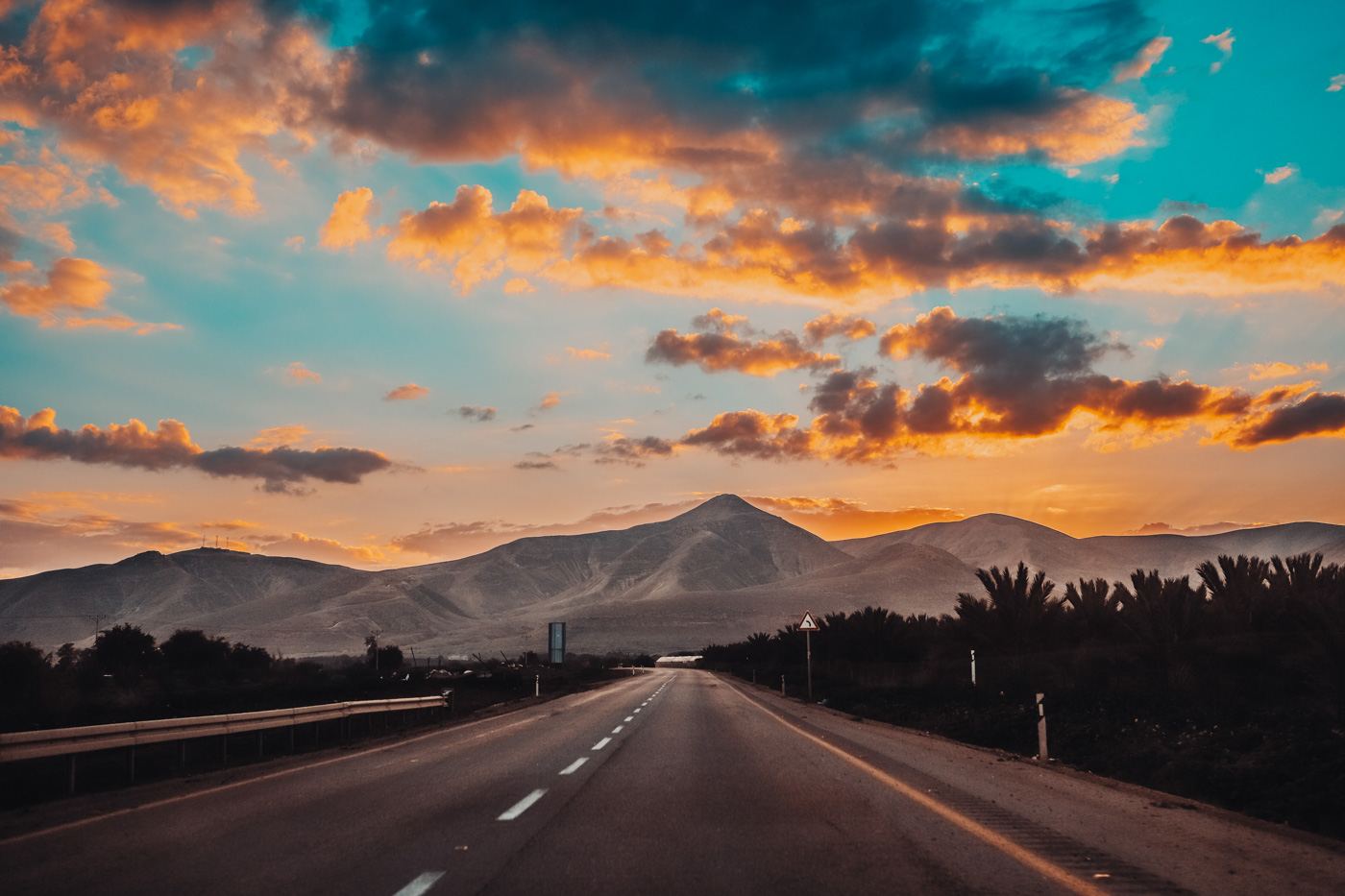
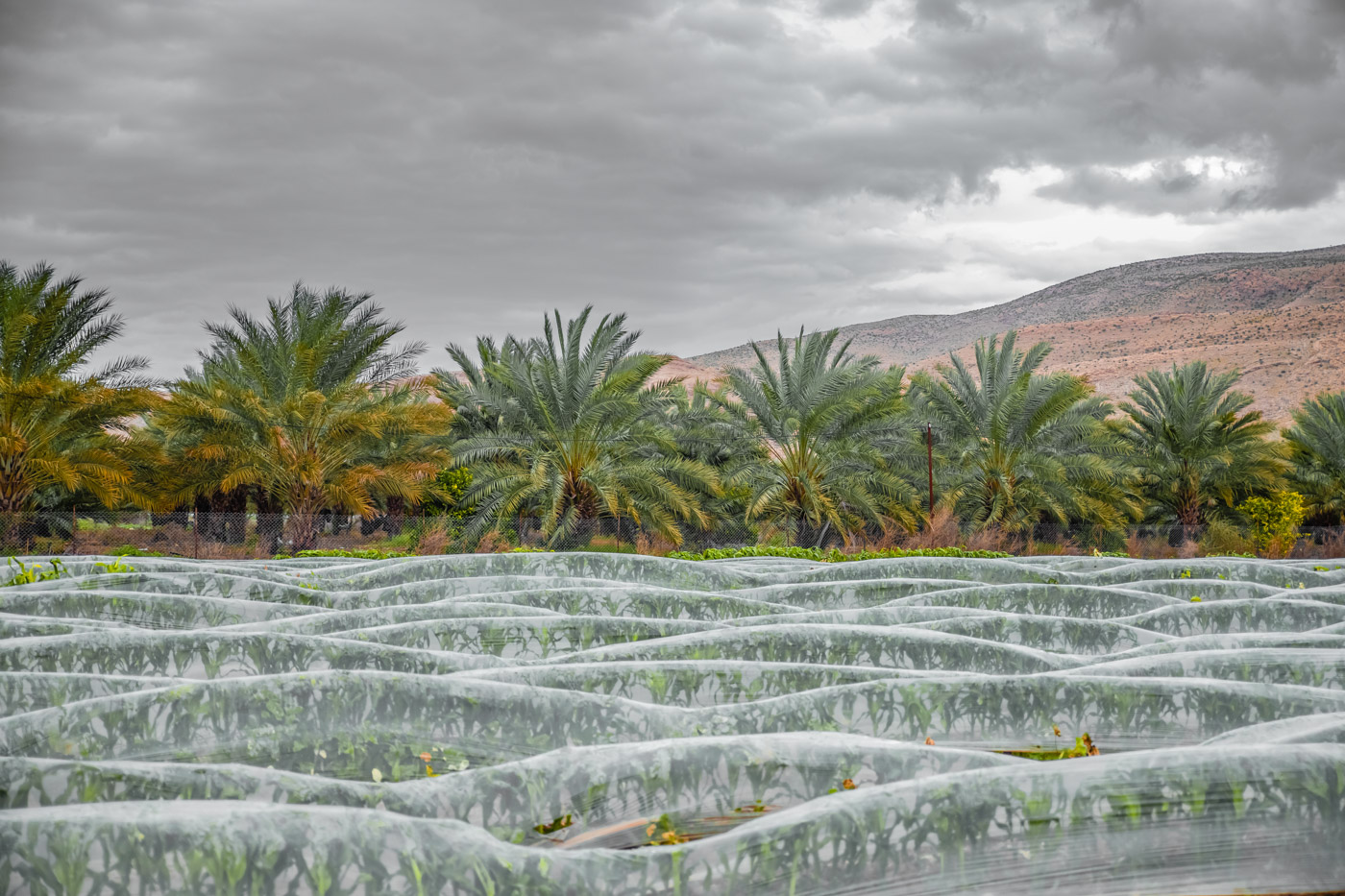
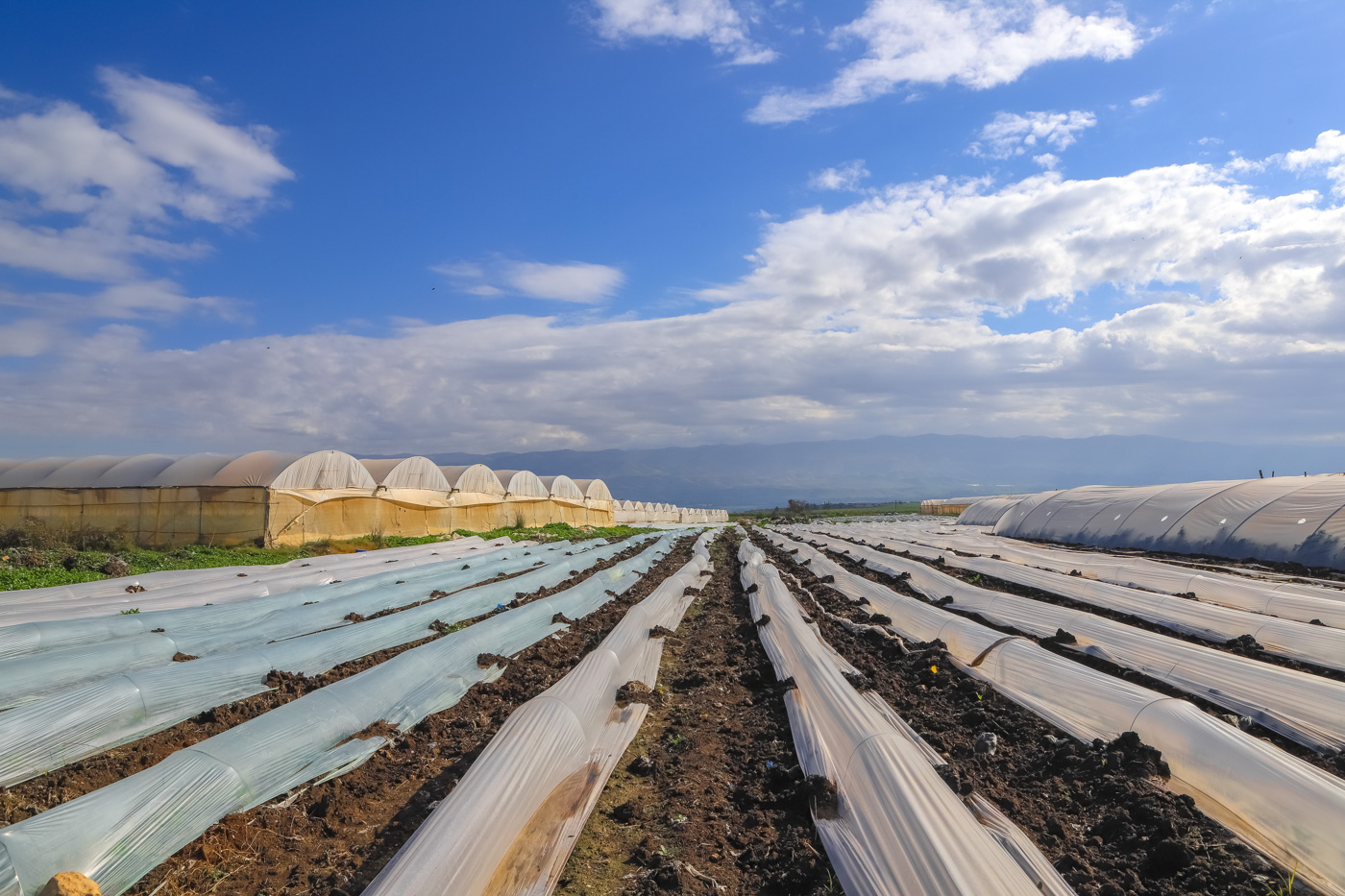
Saad Dagher remembers growing up on his father’s farm in Eastern Bani Zaid, a village about thirty minutes outside Ramallah. “When I was a child,” Dagher recalls, “my father used to produce his own seeds.” Dagher traveled to the Soviet Union to study agronomy in the eighties, and when he returned to Palestine in the early nineties, he says, “I found zero local seeds in our house.”
Corporate farming has forced out certain crops and farming methods, resulting in monocultures of hybrid varieties. The same has happened around the world, but, in Palestine, the effects have been magnified by the occupation. “We have been taught that we are worth nothing,” Vivien Sansour, founder of the Palestine Heirloom Seed Library, told a reporter for the Sustainable Food Trust. “Our minds have been colonized for so many years.” This conditioning, Sansour says, has amplified the rejection of traditional crops in favor of big-name international brands among Palestinian consumers.
Dagher has similar ideas about the reasons behind the shift to chemical agriculture in Palestine. “It’s a kind of brainwashing,” Dagher says. “Farmers have been stuck with this idea that they cannot produce without chemicals, [but] it’s a delusion.”
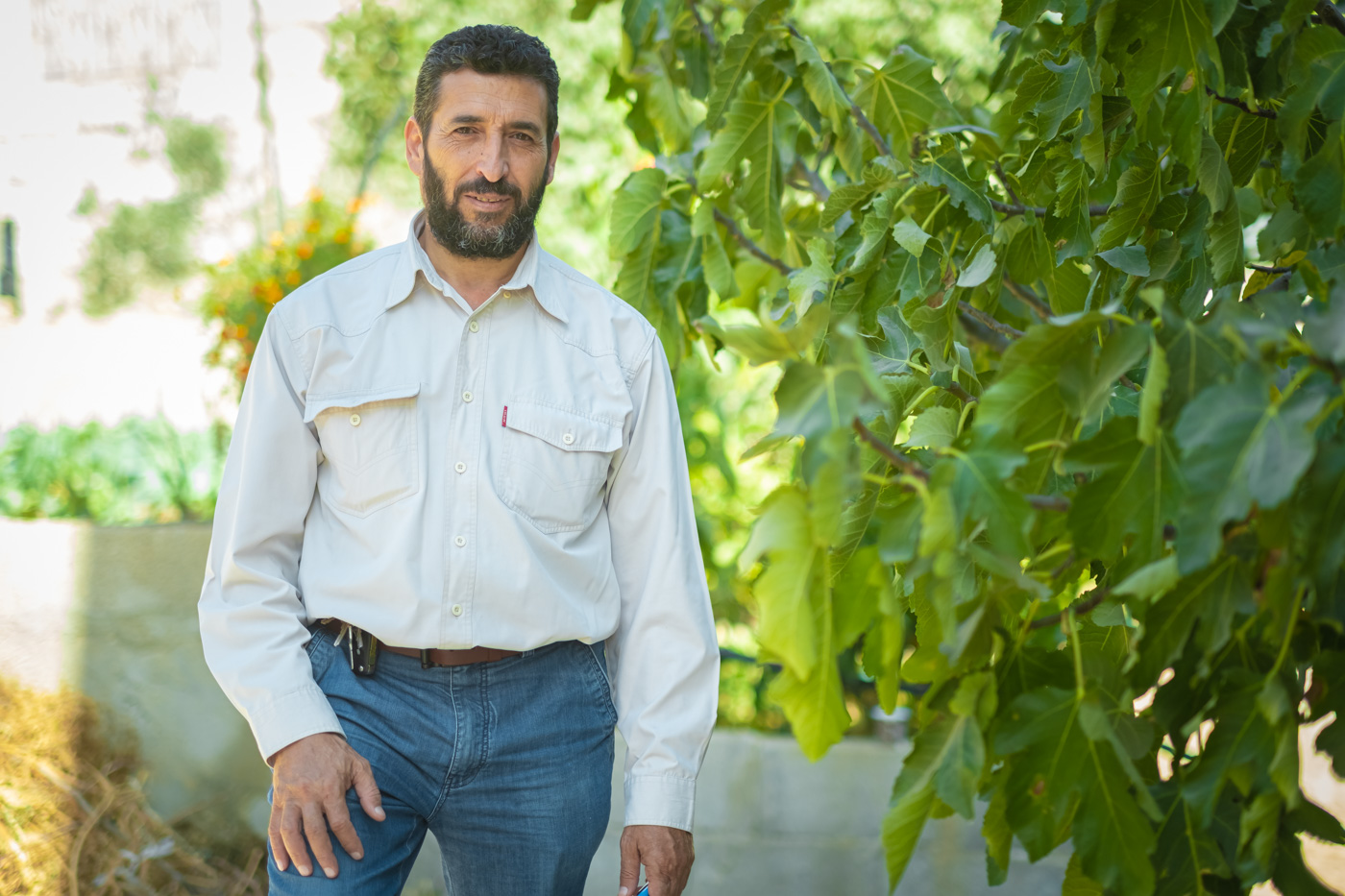
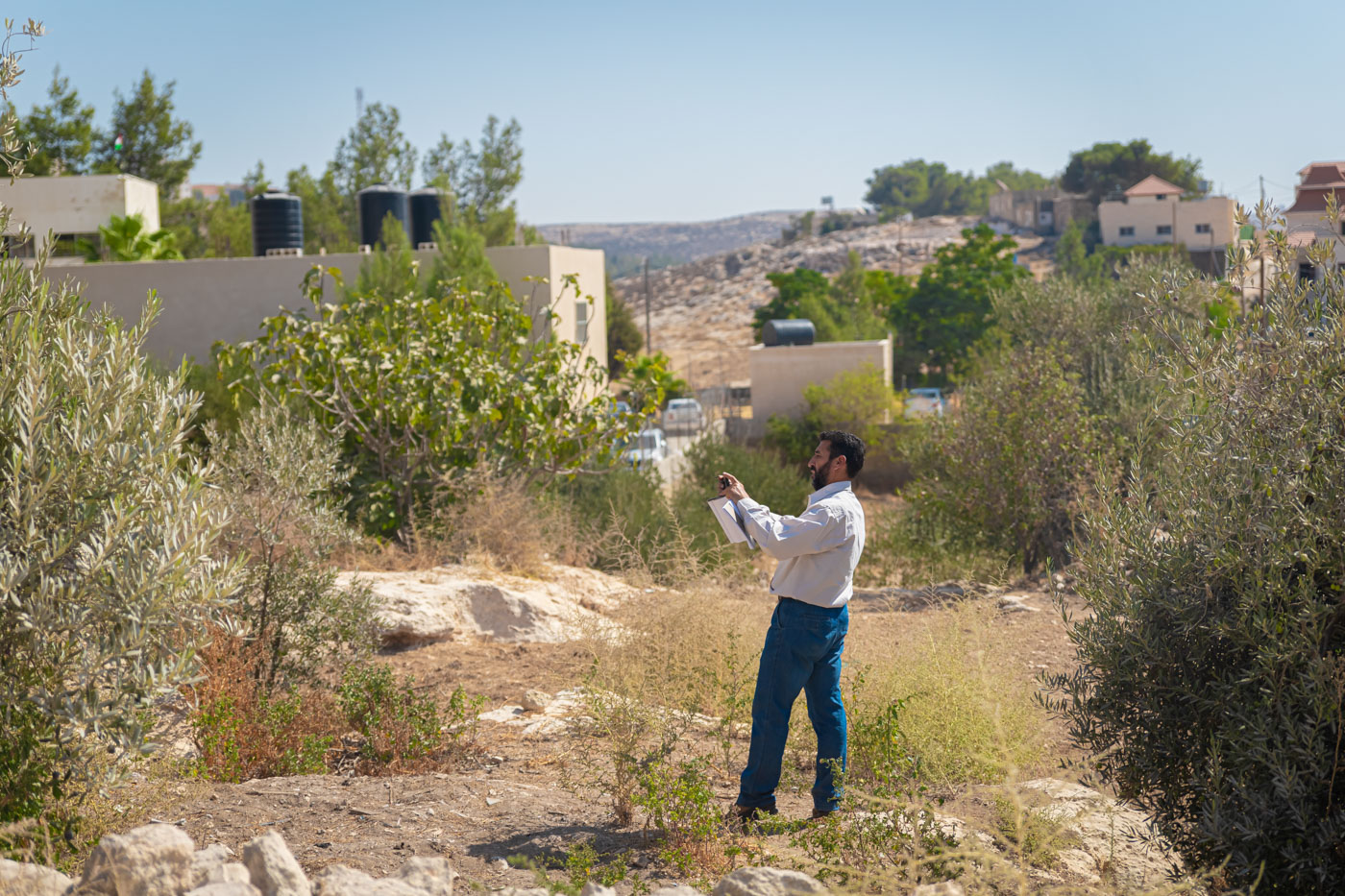
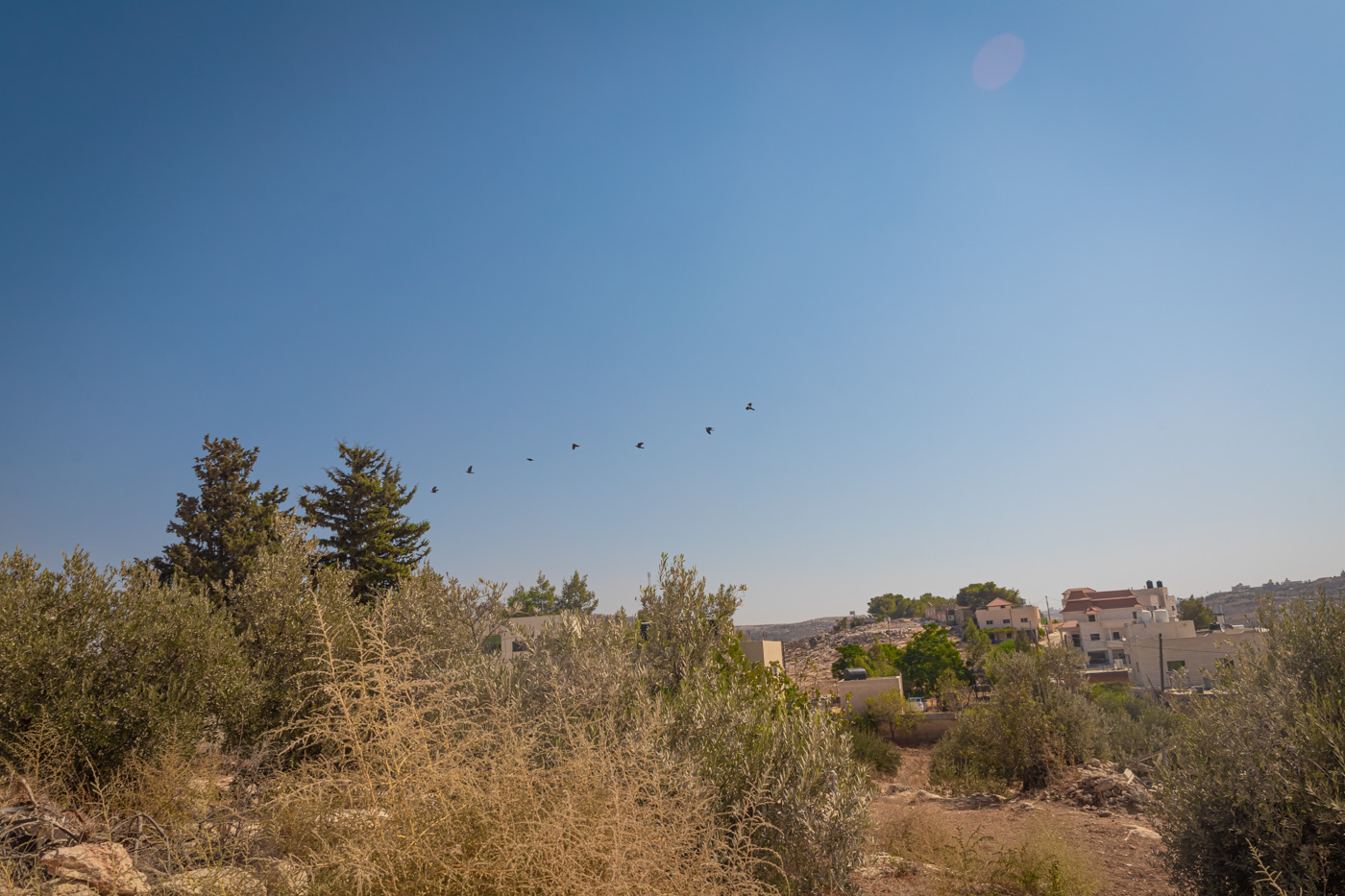
The commercial seed varieties that have become common in Palestine are either hybrid or GMO seeds, which means they can’t be reproduced and must be purchased every planting season. This keeps Palestinian farmers dependent on foreign agribusinesses—the same agribusinesses that supply them with the expensive chemical fertilizers and pesticides needed to ensure that nonnative crops bear fruit in the Palestinian climate.
These new commercial crops consume more water than endemic crops too, and that’s a problem for Palestinian farmers because Israelis control every well and pipeline in the West Bank. With control over water, Israeli companies are able to charge Palestinians high prices for the vital resource. Saadeh recalls that he used to pay eight shekels ($2.40) for one cubic meter of water for his farm in the Makhrour Valley. “At the same time,” he says, “they charge [the Israeli] settlers just one shekel ($.30) for the same water.”
Other constraints hinder Palestinian agricultural production in the West Bank too. Israel maintains all building and planning powers in the majority of the West Bank, for example, and all but prohibits Palestinians from building new structures or expanding old ones. These restrictions make developing the infrastructure needed to improve agricultural production, like reservoirs or processing facilities, nearly impossible. When Palestinians build without Israeli permission, which is rarely granted, their structures are subject to demolition. Saadeh says that while his restaurant in the Makhrour Valley was never demolished, a neighboring restaurant was—three times.
Obstacles to Palestinian agricultural development, coupled with high unemployment and poverty rates that render food unaffordable for many, has left 1.7 million Palestinians in Gaza and the West Bank food insecure, according to the United Nations’ World Food Programme. Members of a grassroots agroresistance movement are hopeful that adopting more traditional and sustainable farming practices through the study of agroecology might address many of the problems in the West Bank. Agroecology calls for a redesign of agricultural systems based on ecological and socio-cultural processes and respect for biodiversity.
Dagher has pioneered the move toward agroecological farming in Palestine; his first successful agroecology project was on a small plot of land in Ramallah in 2002. “I noticed that we could not continue with chemical farming,” Dagher recalls. He says not only were the chemicals unhealthy for farmers and consumers, but they were also expensive and often failed to keep pests at bay. “I saw that agroecology could be the solution for agriculture, and, at the same time, could play a role in achieving food sovereignty,” Dagher says.
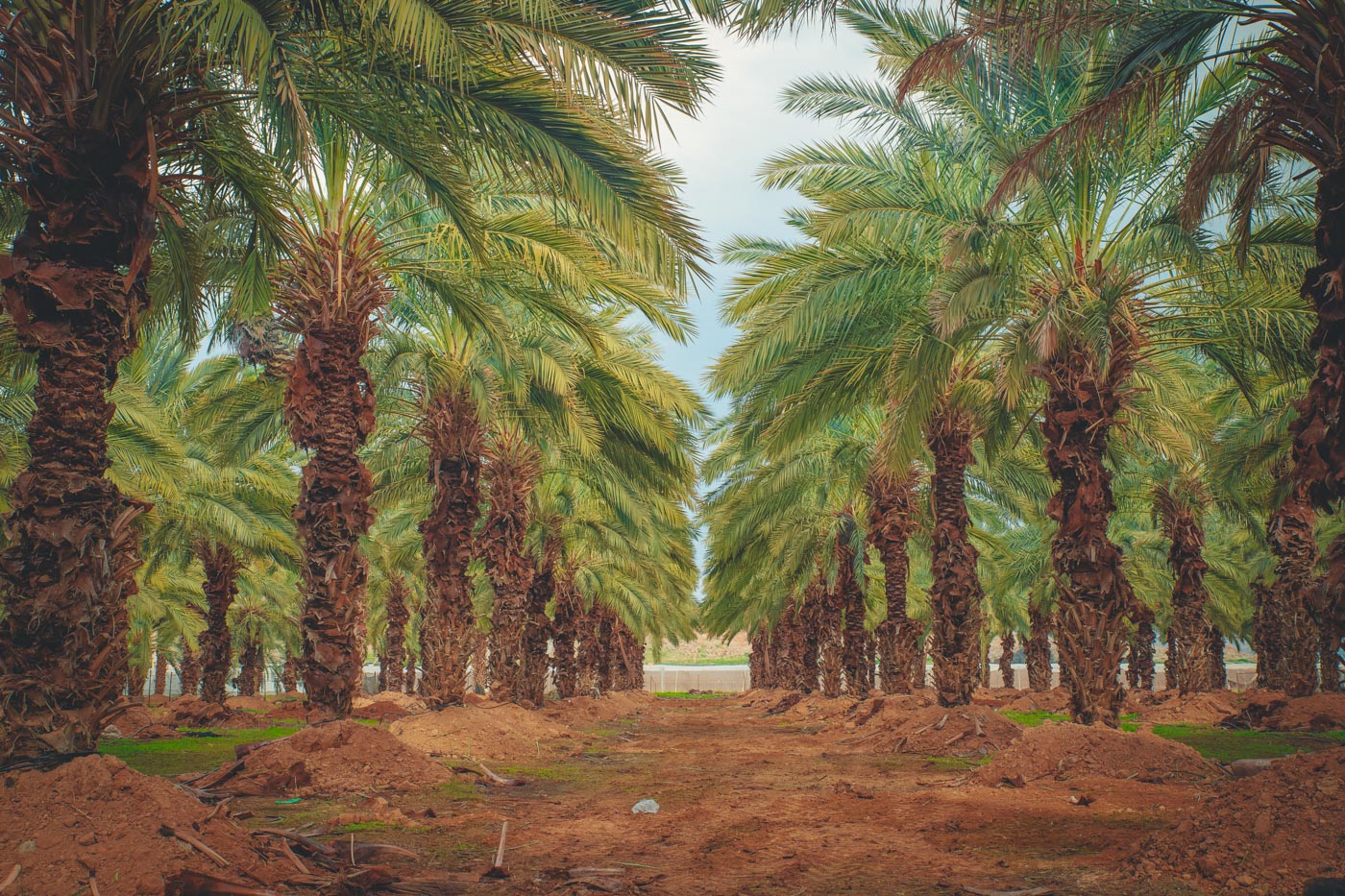
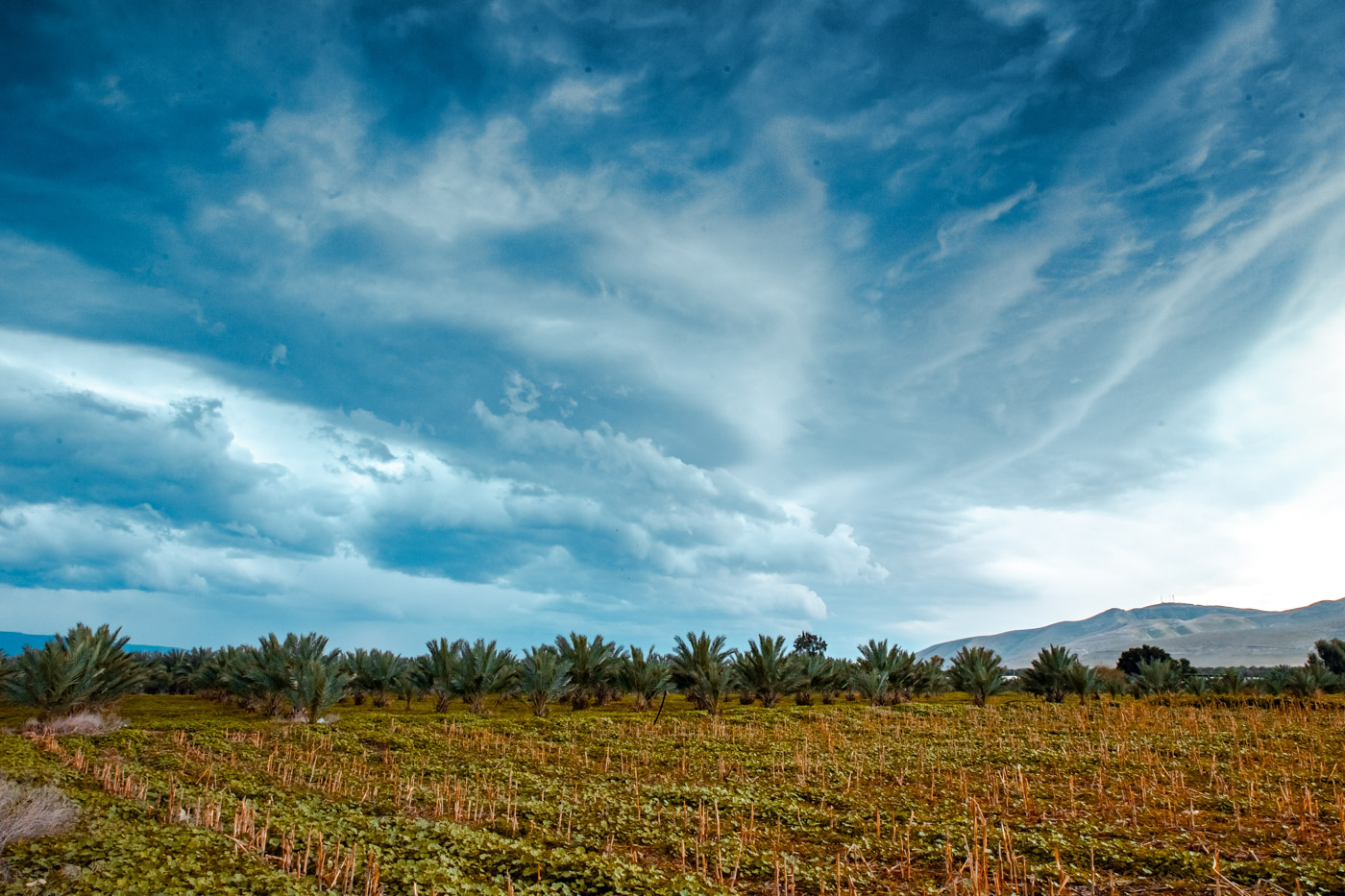
He now operates a larger farm, called the Humanistic Farm, on land passed down from his father in Eastern Bani Zaid. “By introducing agroecology,” Dagher says, “we can be independent in terms of inputs—like fertilizers, pesticides, seeds—and we can produce more with less water.” A large part of Dagher’s current work is teaching and advocacy. He gives lectures and tours of his farm and travels around Palestine to train others in agroecological farming practices. Dagher says that in the last decade, upwards of four hundred farmers have begun to embrace agroecology in Palestine, and many of them are women and young people. “The agroecological revolution will be led by women and youth,” Dagher says with a smile.
While the shift to agroecological farming that Dagher advocates promises to make Palestinian agriculture more sustainable and autonomous, the greatest threat to food sovereignty in Palestine today is a political one. After winning re-election last year, Israeli Prime Minister Benjamin Netanyahu is promising to annex Israeli settlements in the West Bank and dispossess Palestinians of a further thirty percent of the land there. Saadeh fears that as Israel continues to seize agricultural land, Palestinians “will lose agriculture, in general, as a way of life.”
Netanyahu had planned to move forward with annexation as early as July, but he agreed to delay it as part of a breakthrough peace agreement with the United Arab Emirates—one that was negotiated, notably, without Palestinians. Netanyahu made it clear, however, in an interview with Sky News Arabia on August 17, that his annexation plans had only been “suspended…for [the] time being.”
The areas on Netanyahu’s list for annexation are those earmarked for it under the Trump peace plan, which Palestinian President Mahmoud Abbas rejects. One of these areas is the Etzion Bloc, a cluster of more than twenty Israeli settlements in the al Khalil Mountains above the Makhrour Valley. If Israel annexes this area, Saadeh says, it will install new walls and security measures that may make the Makhrour Valley inaccessible to Palestinians. Saadeh explains there are already some Israeli officers stationed around the valley, and, in a process that can be humiliating or even dangerous, the officers stop everyone who wants to enter the area to check their identity documents. “Because of that, many people stopped coming,” Saadeh says. He closed his restaurant in the Makhrour Valley last year, as business slowed and he could no longer keep up with the cost of rent.
The most controversial part of Netanyahu’s plan has been his promise to annex the Jordan Valley, an elongated strip of rich agricultural land that runs along the Jordanian border. Israel wants to establish a defensible eastern border here and absorb the illegal settlements in the region, which are home to about 11,000 Israeli settlers.
Israel has economic interests in the Jordan Valley too. The area is coveted for its unique climate, which is suitable for year-round agriculture. Dagher calls it a “natural greenhouse.” “In the West Bank, we produce tomatoes, cucumbers, and [other] summer crops in the mountains in summertime,” Dagher explains.
“And in wintertime, we produce these crops in the Jordan Valley. It also has good conditions for producing a lot of field crops, like wheat, barley and legumes,” Dagher continues. With good reason, the Jordan Valley is also known as Palestine’s food basket, and Israeli annexation would spell disaster for Palestinian food security. “Confiscating this area means that we will lose our main source of food,” Dagher warns.
When Saadeh is asked about the Israeli annexation plan, he sighs before responding. “I think it is so dangerous,” he says. “[In] the future—the next two or three years—I think we will face very hard times. But Palestinians are experienced; we have lived in hard situations. In the end, I am optimistic [that] we will manage.”
Dagher also has hope for the future, in no small part thanks to his vision for an agroecological revolution. “I see agroecology as a tool,” Dagher says. With it, he hopes that Palestinians will not only achieve food sovereignty in the future, but will “create al Baraka,” an Arabic word that translates in this case to “blessed abundance.”

Our comments section is for members only.
Join today to gain exclusive access.